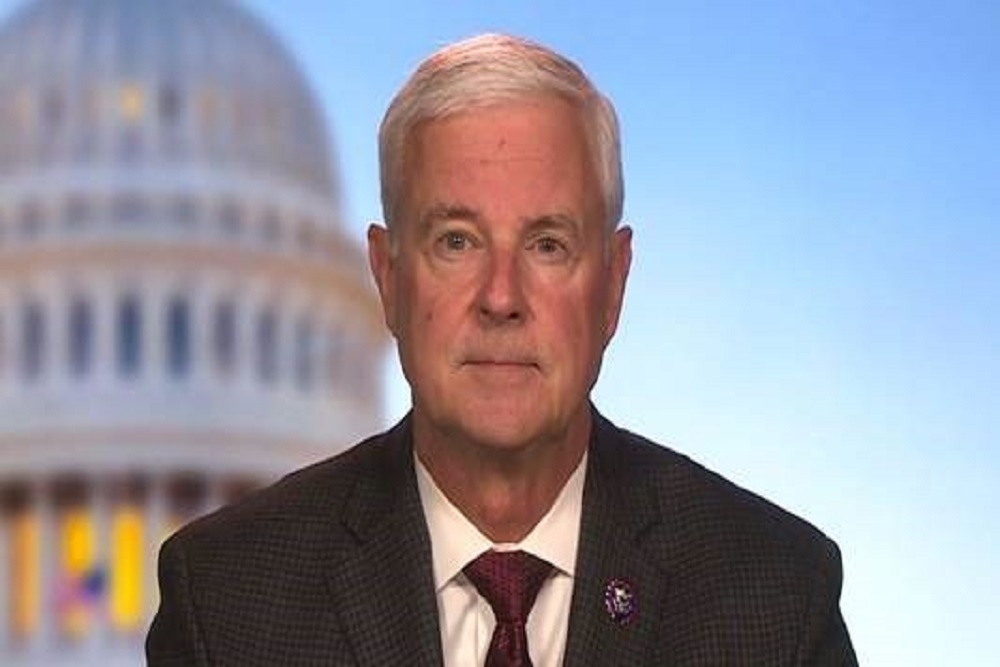Washington, DC—June 24, 2022....Today, the full committee met to consider the fiscal year 2023 bills for the subcommittees on Homeland Security and Financial Services and General Government.
Financial Services-General Government Subcommittee Lead Republican Steve Womack (R-AR) said, “Arkansans and Americans are being forced to make tough financial decisions each day. Congress needs to do the same. Yet here we are again with an FSGG bill with double-digit increases. The out-of-control baseline allocations and controversial riders are unacceptable. Both sides know this. With debt approaching record levels and inflation at a 40-year high, responsible policymaking is required now more than ever. We can meet the needs of our nation while prioritizing fiscal restraint. It’s high time my Democrat colleagues get serious about finding bipartisan consensus. Another episode of appropriations bills purposed as messaging documents leaves us no closer to finishing our work.”
Ranking Member Kay Granger (R-TX), the lead Republican on the Appropriations Committee, said, “These bills create real-world consequences for every community in the United States. Failing to address both the crisis at the border and record-high prices puts the American people at risk. We know what it takes to address these issues, and today, Republicans presented proven solutions – many of which my colleagues on the other side of the aisle previously supported like border wall funding. While a few of our amendments were accepted, including maintaining a public health policy that restricts illegal entry into the U.S., most were rejected. If the Majority wants to get serious about these issues, these bills will have to be significantly changed.”
Homeland Security Subcommittee Lead Republican Chuck Fleischmann (R-TN) said, “This year’s proposed Homeland Security funding bill represents the best and worst of Congress. There is bipartisan agreement for a good portion of this bill, including robust funding for cybersecurity, FEMA, the Secret Service, and our outstanding Coast Guard. However, this bill does not prioritize funding for border security, which is fundamental for securing our homeland. Democrats’ bill includes provisions that dismantle previous bipartisan agreements to build the Border Wall, reduce border security technology spending, and encourage more illegal immigration. We risk emboldening the cartels by showing weakness on border security and our lack of commitment to enforcing our immigration laws. Until we can come to an agreement on the necessity to fund border security fully, I, and my fellow Republicans on the Committee, cannot support this bill in its current form. I hope our Democrat counterparts will join Republicans to secure our nation’s borders.”
In an effort to push back on the Democrats’ partisan proposals, Republicans offered several amendments during both markups. These amendments were rejected:
Republican Amendments to the Financial Services-General Government Appropriations Bill:
- Promote pro-life policies by restoring long-standing prohibitions on the use of Federal Employee Health Benefits and District of Columbia local funds for abortion.
- Prevent new Treasury regulations that do not reduce inflation until either the cost of gas or the Consumer Price Index (CPI) returns to pre-pandemic levels.
- Prevent the U.S. Postal Service from developing government-run banking.
- Prohibit the SEC from implementing its proposed climate rule that would require public companies to disclose climate-related information in their filings.
- Prohibit SEC overreach into private fund advisors.
- Ensure TV and radio marijuana advertising is accurate and pose no risk to an individual or the public health by requiring certification from the NIDA Director.
- Increase IRS reporting threshold requirement for 3rd party settlement organizations to report business transactions.
- Transfer funds from the Presidential Election Campaign Fund to the 10-Year Pediatric Research Initiative Fund.
- Move $80 million from IRS enforcement programs to the Treasury for cybersecurity efforts.
- Prevent wasteful spending at the Federal Trade Commission by reducing funding to the FY22 level.
- Provide additional border wall funding.
- Ensure wall funding is not diverted from border wall construction to environmental mitigation.
- Prevent the transfer of border wall funds to Department of Interior agencies for border mitigation work.
- Withhold funding for Homeland Security’s Office of the Secretary until border wall funding is spent on wall construction.
- Increase funding for border technology to the FY22 level.
- Fully fund the “Remain-in-Mexico” program or Migrant Protection Protocol, which ensures those seeking asylum remain in Mexico until their court date.
- Prevent DHS from transporting migrants into the interior of the country, also known as “ghost flights.”
- Prevent efforts to restrict ICE immigration enforcement.
- Prevent new, misguided ICE interior enforcement policies that prevent officers from removing dangerous criminals.
- Provide ICE with the needed number of detention beds to house dangerous criminals.
- Increase funds for Operation Stonegarden, which supports enhanced cooperation and coordination between CBP and state and local partners in efforts to secure the border.
- Prevent the establishment of the DHS’ Disinformation Board.
- Reduce TSA collective bargaining funding and increase border technology investments.
Financial Services-General Government Full Committee Markup – Womack
Financial Services-General Government Full Committee Markup – Granger
Homeland Security Full Committee Markup – Granger
Homeland Security Full Committee Markup – Fleischmann
Congressman Steve Womack (AR-3) has represented Arkansas’s Third Congressional District since 2011. He is a member of the House Appropriations Committee.
Original source can be found here.


